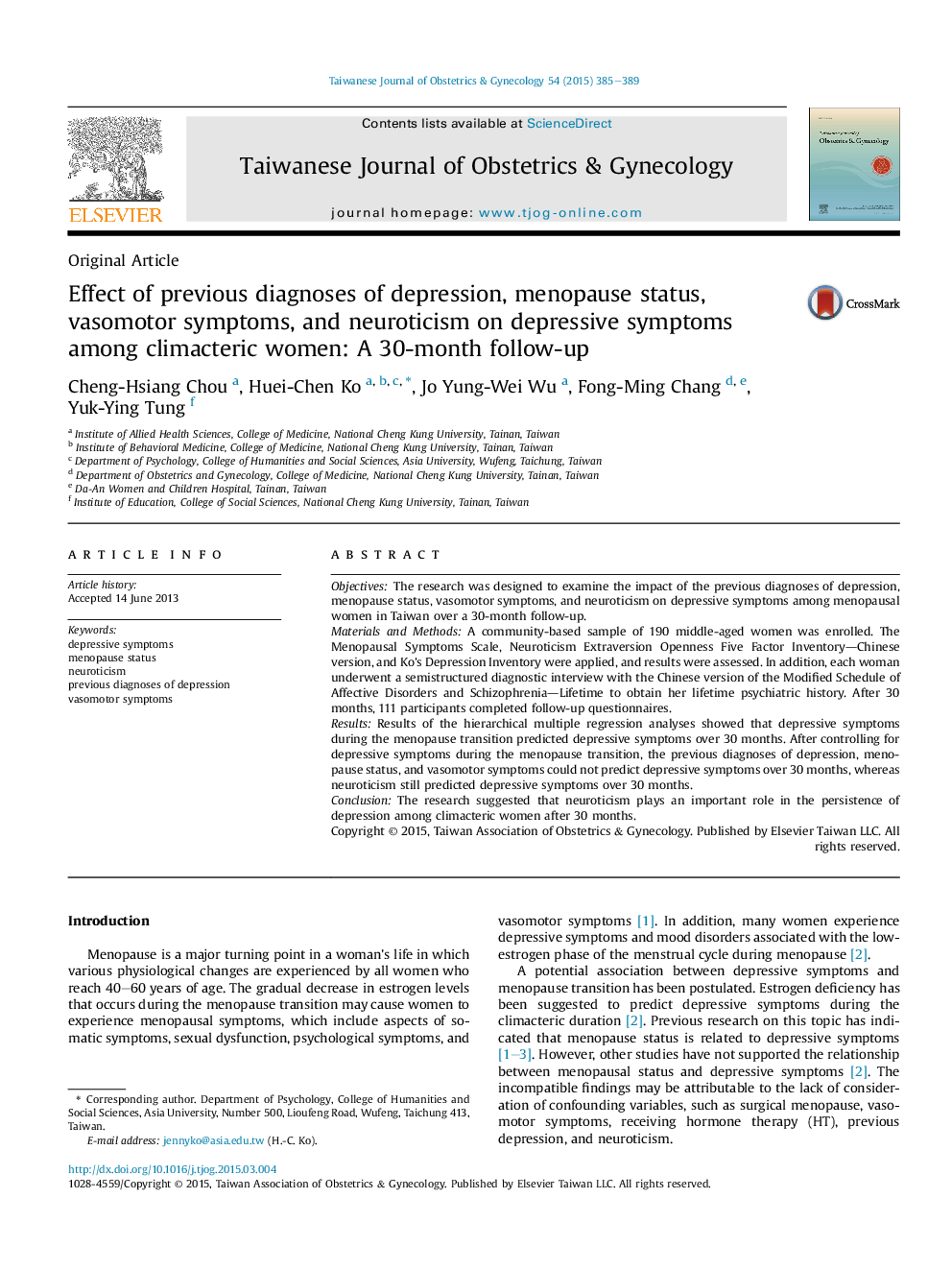| Article ID | Journal | Published Year | Pages | File Type |
|---|---|---|---|---|
| 3975053 | Taiwanese Journal of Obstetrics and Gynecology | 2015 | 5 Pages |
ObjectivesThe research was designed to examine the impact of the previous diagnoses of depression, menopause status, vasomotor symptoms, and neuroticism on depressive symptoms among menopausal women in Taiwan over a 30-month follow-up.Materials and MethodsA community-based sample of 190 middle-aged women was enrolled. The Menopausal Symptoms Scale, Neuroticism Extraversion Openness Five Factor Inventory—Chinese version, and Ko's Depression Inventory were applied, and results were assessed. In addition, each woman underwent a semistructured diagnostic interview with the Chinese version of the Modified Schedule of Affective Disorders and Schizophrenia—Lifetime to obtain her lifetime psychiatric history. After 30 months, 111 participants completed follow-up questionnaires.ResultsResults of the hierarchical multiple regression analyses showed that depressive symptoms during the menopause transition predicted depressive symptoms over 30 months. After controlling for depressive symptoms during the menopause transition, the previous diagnoses of depression, menopause status, and vasomotor symptoms could not predict depressive symptoms over 30 months, whereas neuroticism still predicted depressive symptoms over 30 months.ConclusionThe research suggested that neuroticism plays an important role in the persistence of depression among climacteric women after 30 months.
